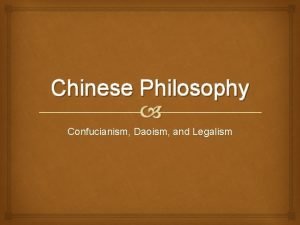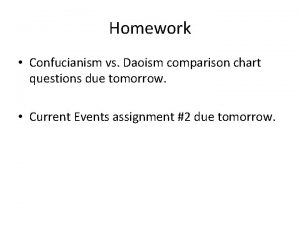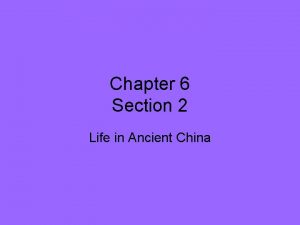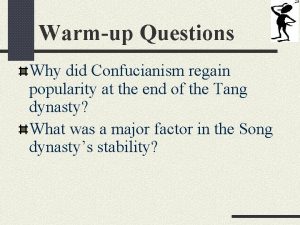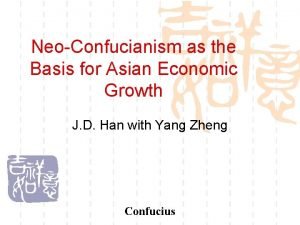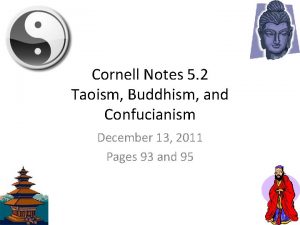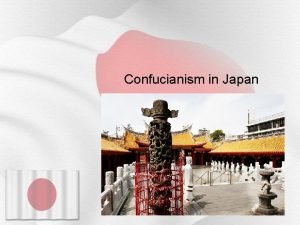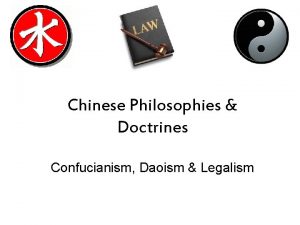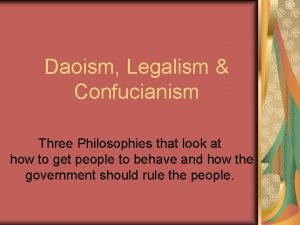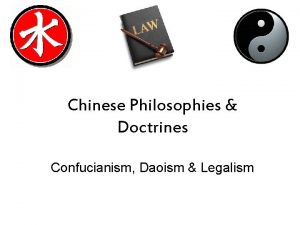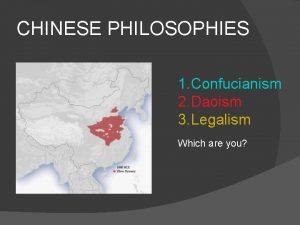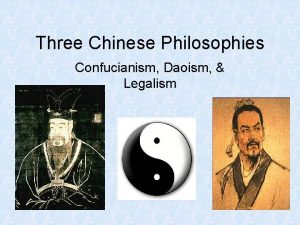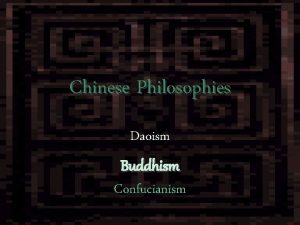Early Chinese Philosophies Legalism Confucianism Daoism From Shang








- Slides: 8

Early Chinese Philosophies Legalism, Confucianism, Daoism

From Shang to Zhou �The Shang dynasty used a lot of divination, ancestor worship, and extravagant bloody rituals; the king was the “indispensible intermediary between people and gods” �The Zhou, who came next, defeated the Shang under the principal of the Mandate of Heaven—a ruler is only in power as long as he is a wise, principled, and energetic guardian of his people �Some Shang traditions were maintained, but a separation of religion and government promoted new philosophies and mystical systems

Legalism �Human nature is wicked and people behave best with strict laws and harsh punishments in place �Every aspect of human society should be controlled �Personal freedom should be sacrificed for the good of the state �This all justified the wealth and power of the state government �This occurred at the end of the Zhou decline, called the Warring States Period (480 -221 BCE) when order was most needed in China

Confucianism �Hierarchy is the key word—both in government and in family �Father at the top, then sons, then wives and daughters in order of age; this parallels society’s structure �Government exists to serve the people �Teachings emphasize: benevolence, avoidance of violence, justice, rationalism, loyalty, and dignity �People are generally good

Daoism �Cannot be defined, must be experienced �Means “the path” �Accept the world as you find it, avoid struggles, follow the path of nature (not scientifically) �Idealized individuals who found their own “path” to right conduct-an alternative to Confucian hierarchy and Legalist force �Yin and yang: complementary nature of male and female roles; balance

The Tao of Pooh �"When you wake up in the morning, Pooh, " said Piglet at last, "what's the first thing you say to yourself? “ "What's for breakfast? said Pooh. "What do you say, Piglet? “ "I say, I wonder what's going to happen exciting today? " said Piglet. Pooh nodded thoughtfully. "It's the same thing, " he said.

The Tao of Pooh cont’d �"Rabbit's clever, " said Pooh thoughtfully. "Yes, " said Piglet, "Rabbit's clever. “ "And he has Brain. “ "Yes, " said Piglet, "Rabbit has Brain. “ There was a long silence. "I suppose, " said Pooh, "that's why he never understands anything. "

The Tao of Pooh cont’d
